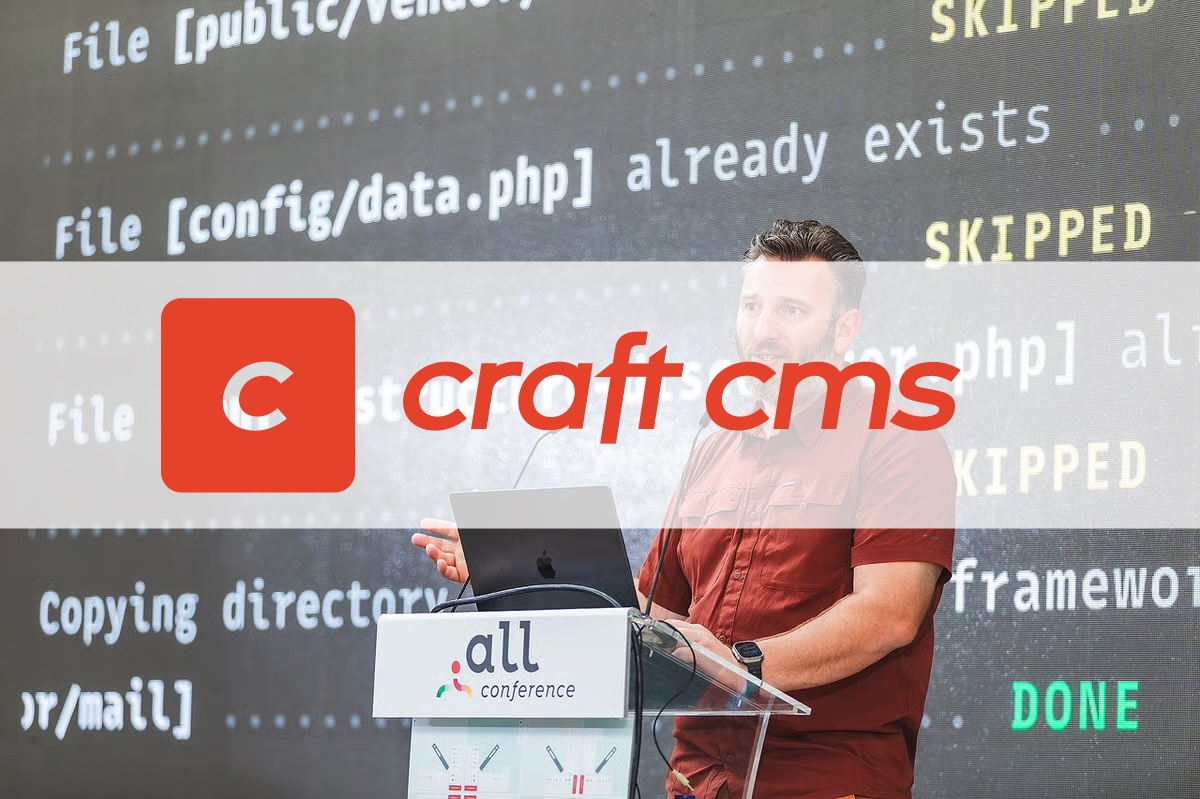Craft CMS Moves to Laravel
Last week at Dot All 2025 in Lisbon, Pixel & Tonic announced that Craft CMS 6 will be built on Laravel rather than continuing with the Yii 2 framework. For those of us who have watched the PHP ecosystem evolve over the past decade, this represents a significant strategic shift-and one that I believe will ultimately strengthen Craft's position in the enterprise CMS market.

Why This Matters
The decision to migrate from Yii 2 to Laravel isn't merely a technical one. It's a calculated business decision driven by ecosystem realities. Laravel has become the de facto standard PHP framework, commanding a developer mindshare that Yii 2 simply cannot match. The numbers tell the story: Laravel's ecosystem includes thousands of packages, extensive tooling, and a talent pool that dwarfs most alternatives.
For CTOs and technical leaders evaluating CMS platforms, this shift addresses a critical concern: developer availability and onboarding costs. Finding developers familiar with Laravel is substantially easier than finding Yii 2 expertise. This directly impacts your ability to maintain, extend, and support Craft implementations over the long term.
The Technical Advantages
Laravel brings several concrete technical benefits that will enhance Craft's capabilities:
Ecosystem Integration: Laravel's package ecosystem is extensive and mature. Craft will gain immediate access to battle-tested solutions for everything from payment processing to API integrations. Services like Laravel Forge, Vapor, and Envoyer provide deployment and infrastructure management specifically optimised for Laravel applications.
Developer Experience: Laravel's expressive syntax, comprehensive documentation, and robust CLI tooling (Artisan) have set the standard for modern PHP development. This translates to faster development cycles and reduced onboarding time for new team members working on Craft projects.
Queue and Job Management: Laravel's queue system is robust and supports multiple backends out of the box. For content-heavy sites dealing with asset processing, imports, or scheduled publishing, this infrastructure will provide immediate benefits.
Testing Infrastructure: Laravel ships with excellent testing support, including PHPUnit integration and browser testing via Dusk. This will enable plugin developers and agencies to build more reliable extensions and customisations.
Learning from Past Mistakes
Pixel & Tonic has been transparent about the challenges they faced migrating from Craft 2 (Yii 1) to Craft 3 (Yii 2). That transition took years, broke plugin compatibility extensively, and delivered limited author-facing features-a difficult proposition for existing customers.
This time, they're taking a markedly different approach. Rather than a complete rewrite, Craft 6 will be a port of the existing architecture to Laravel. More importantly, they're providing a Yii 2 adapter package that maintains compatibility with Craft 5 plugins, minimising breaking changes. This pragmatic approach demonstrates maturity and respect for their ecosystem.
The planned author-facing features-content releases, approval workflows, scheduled drafts, and activity logs-represent meaningful improvements that justify the upgrade beyond the framework change itself. These enterprise-focused features suggest Craft is doubling down on their position as a premium, author-friendly CMS.
The Challenges
No migration of this scale is without risks. The Yii 2 compatibility layer, whilst necessary, introduces an additional abstraction that may impact performance or create unexpected edge cases. Plugin developers will need to make decisions about supporting both Craft 5 and 6 simultaneously, potentially fragmenting the ecosystem temporarily.
There's also the question of Laravel's opinionated nature. Whilst Yii 2 is relatively lightweight, Laravel ships with significant functionality by default. Craft will need to carefully balance leveraging Laravel's features whilst maintaining their own architectural patterns that developers have come to rely upon.
The timeline is ambitious but realistic-beta in Q3 2026, general availability in Q4 2026. The five-year LTS commitment for Craft 5 provides a generous migration window, which should ease concerns about forced upgrades.
My Take
I believe this move is fundamentally the right decision for Craft's long-term viability. The strength of Laravel's ecosystem and the depth of available talent pool are decisive advantages that will benefit everyone in the Craft community.
For agencies and development teams, this reduces technical risk. You'll have access to a larger pool of developers who can contribute to Craft projects. For product companies and enterprises running Craft, this means better long-term support options and reduced dependency on niche expertise.
The proof will be in the execution. Pixel & Tonic's transparent approach, realistic timeline, and commitment to backwards compatibility through the adapter package all suggest they've learned from past challenges. The addition of enterprise-focused features like approval workflows and content releases demonstrates they understand their market.
Recommendations for Technical Leaders
If you're currently running Craft CMS or evaluating it:
Existing Craft installations: The five-year LTS commitment for Craft 5 provides ample time to plan your migration. Use this window to audit custom plugins and modules, and begin conversations with your plugin vendors about Craft 6 compatibility.
New projects: Craft 5 remains a solid choice. The LTS commitment ensures you'll have support through 2031, and the Yii 2 compatibility layer should make eventual migration straightforward.
Evaluating Craft: This move strengthens Craft's position as an enterprise CMS. The Laravel foundation will make it easier to staff projects and integrate with modern PHP tooling, reducing long-term technical debt concerns.
The PHP CMS landscape has been shifting for years, with WordPress dominating market share whilst Craft, Statamic, and others compete for the premium segment. Craft's move to Laravel represents a strategic bet on developer experience and ecosystem strength over framework independence. Based on Laravel's trajectory and proven track record, it's a bet I'd take.